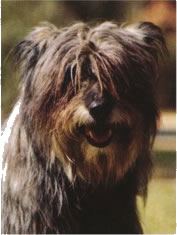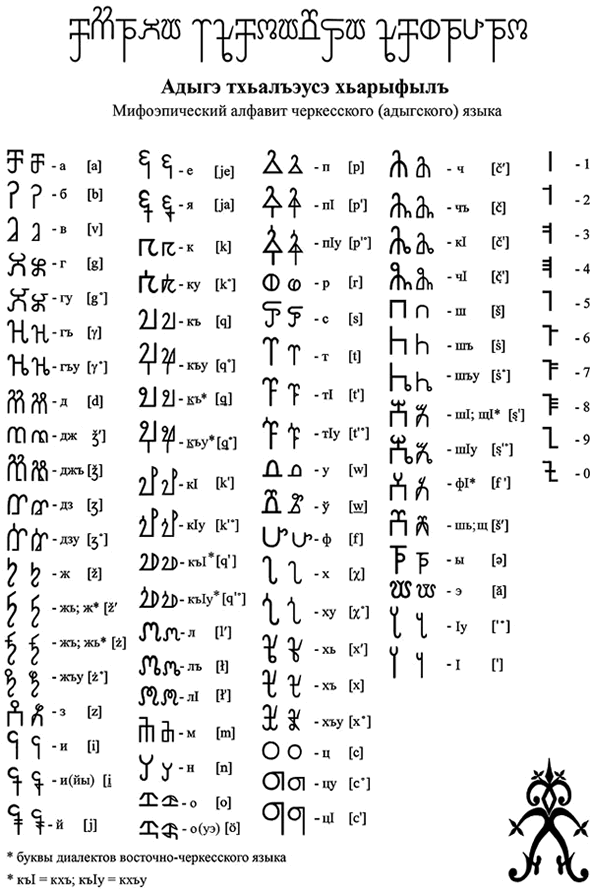Here’s a recording of part of a story in a mystery language.
Can you identify the language and where it’s spoken?
Here’s a recording of part of a story in a mystery language.
Can you identify the language and where it’s spoken?
Heno mi es i i gyngerdd wych yn y prifysgol gan Siân James, cantores a thelynores o Ganolbarth Cymru a Anxo Lorenzo, pibydd o Alisia. Roedd yn ardderchog dros ben.
Mae llais hyfryd iawn ‘da Siân, ac mae hi’n canu’r delyn a’r piano yn wych hefyd. Roedd dau ddyn yn cyfeilio hi – roedd un yn canu’r allweddellau a’r piano, ac yn canu, a roedd un arall yn canu chwibanau, y ffidil a’r accordion. Cerddorion dawnus iawn oedden nhw. A dweud y gwir, yr albwm Cymraeg cyntaf y brynes i oedd Distaw gan Siân James, ac wrth gwrando ar ei chaneuon, mi syrthies i mewn cariad gyda’r iaith Gymraeg, ac ar ôl hynny ro’n i’n awyddus i ddysgu’r iaith.
Mae Anxo Lorenzo yn dod o Alisia yng ngogledd-orllewin Sbaen. Mae e’n canu’r facpib Galisieg, neu gaita (de foles) yn yr Alisieg, a’r chwibanau. Yn cyfeilio e oedd dyn arall o Alisia sy’n canu’r bouzouki (boswcî?), a dyn o Iwerddon sy’n canu’r ffidil. Roedden nhw’n canu alawon o Alisia ac o Iwerddon yn angredadwy o dda ac yn gyflym dros ben. Mi glywes i’r facpib Galisieg o’r blaen – roedd dyn o Wcráin yn canu nhw un waith pan ro’n i’n yn Iwerddon – ond dw i erioed wedi clywed rhywun yn canu nhw mor gyflym a mor dda, ac roedd rhai o’r synau oedd yn dod oddi wrthynt yn hollol syfrdanol.
According to a study at the University of Haifa in Israel, children who grow up bilingually are able to learn a third language more easily than monolingual children.
The study compared children who speak Russian and Hebrew with those who speak only Hebrew, and who are all learning English at school. It found that the bilingual children not only find it easy to learn English, but also that doing so raises their IQs, and that they speak Hebrew better than the Hebrew monolinguals.
The researchers believe that learning several languages at a young age bolsters one’s language skills, and as skill in language is an important cognitive function, this makes learning easier in general.
When researching the phenomenon of language decline and death for my dissertation, I found that one common reason why languages decline is because many people believe that it’s better for their children to speak a mainstream language rather than a minority language, and that trying to speak both languages is likely to overwhelm their poor little brains and result in them speaking neither language very well. This research suggests that such beliefs are mistaken.
Here are the words of a song we’ve been learning recently at the Bangor Community Choir:
When there is light in the soul, there is beauty in the person.
When there is beauty in the person, there is harmony in the home.
When there is harmony in the home, there is honour in the nation.
When there is honour in the nation, there is peace in the world.
We were told that it’s based on a Chinese proverb, so of course I searched for that proverb and found the following:
明明德於天下者,先治其國。(míngmíng dé yú tiānxià zhĕ, xiān zhì qí guó)
欲治其國者,先齊其家。(yù zhì qí guó zhĕ, xiān qí qí jiā)
欲齊其家者,先修其身。(yù qí qí jiā zhĕ, xiān xiū qí shēn)
欲修其身者,先正其心。(yù xiū qí shēn zhĕ, xiān zhēng qí xīn)
This expresses more of less same sentiments, though they are the opposite way round: it starts taking about the world, then the nation, the home, etc.
Here’s a rough translation:
Those who wish to bring light and virtue to the world, must first govern the nation.
Those who wish to govern the nation, must first organise the home.
Those who wish to organise the home, must first cultivate themselves.
Those who wish to cultivate themselves, must first correct their heart.
Does anybody know where this proverb comes from, by the way?
The way things are arranged in Chinese often seems backwards from the point of view of English speakers. For example, surnames come before personal names, and addresses start from the country or province, rather than with the name.
When speaking (Mandarin) Chinese I try to think in Chinese, but words sometimes come out in English, Welsh or French order, which doesn’t necessarily work very well. This is mainly because I haven’t been using Chinese as much as I used to, so am not as practised at constructing Chinese sentences. I can still communicate effectively in Chinese, but have to rearrange some of the utterances either in my head or after I’ve said them. More practise should help to eliminate this problem.
The other day I discovered that the Mandarin word for belly dancing is 肚皮舞 (dùpíwǔ). As I knew the meanings of the individual characters, I could guess the meaning of the word, even though I hadn’t heard it before. 肚 (dù) is stomach or belly, 皮 (pí) is skin, and 舞 (wǔ) is dance.
I don’t remember seeing 肚 (dù) written down before, though was familiar with the phrase “我肚子饿” (wǒ dùzi è) = I’m hungry (lit. “I belly hungry”). According to the MDBG Chinese dictionary, 肚 (dù) means belly, 肚 (dǔ) means tripe, and 肚子 (dùzi) means belly / abdomen / stomach.
Related words and expressions include:
Another word for stomach is 腹 (fù) – abdomen, belly, stomach.ng
A quick question for you from a visitor to Omniglot:
Does anyone know the meaning of the Xhosa phrase “Sponono yekile”?
It’s the title of a song, which you can hear on this page.
I searched for it in an online Xhosa dictionary without success.

I received a email today asking when the Spanish word perro (dog) replaced can, a word for dog derived from the Latin canis, which appears in the name Canary Islands, (Islas Canarias in Spanish).
The Spanish word perro first appeared in the Diccionario de la Real Academia Española in 1737 [source]; was originally pejorative [source] and is possibly of onomatopoeic origin from the growling sounds made by dogs, perr perr (sounds more like a cat’s purr to me). Shepherds also used that sound to call their dogs. Another possibility is that perro comes from a pre-Roman language [source].
In Spanish the word can was used for dog until about the 14th century, after which it was gradually replaced by perro. The words for dog in most other Romance languages come from the Latin word canis: cane (Italian), chien (French), câine (Romanian), cão (Portuguese), can (Galician). One exception is Catalan, in which the word for dog is gos. [source].
The root of the Latin word canis, which appears in biological name for the subspecies of dogs: canis lupus familiaris, comes from the Proto-Indo-European base *kwon- (dog). This is also the root of the English hound (via the Proto-Germanic *khundas and the Old English hund), the English canine, the Greek κυων (kuōn), the German hund, the Irish cu and the Welsh ci [source].
The English word dog comes from the Old English docga, a word of unknown origin which was probably the name of a particular breed of dog, and had largely replaced the word hound as the general term for dog by the 16th century [source]. Hound started to be used to mean “a dog used for hunting” from the 12th century [source].
The name Islas Canarias probably comes from the Latin Insula Canaria (Island of the Dogs), which was originally just the name of Gran Canaria. It is possible that the dogs referred to were seals [source].
Here are a few unusual and interesting words that I came across today on this page that I thought I’d share with you.
gargalesthesia [ˈgɑːɡəlɪsθiːzɪə] – the sensation caused by tickling, from the Greek gargalos (itching) + esthesia. A medical term that also exists in French (gargalésie). The word gargalos also means bottleneck in Portuguese. Related words include gargalesis (heavy tickling) and knismesis (light tickling).
ginglyform [ˈɡɪŋɡlɪfɔːm] – hinge-shaped, from the Greek ginglumos (a hinge). A medical term used to refer to types of joints such as knee and elbow joints. Related words include ginglymus (a hinge joint), and ginglymoid (a hinge-like movement). [Source]
gongoozler [ɡɒnˈguːzlə] – an idle spectator, especially one who enjoys idly watching activity on canals. It is thought to come from canal workers’ slang, possibly from the Lincolnshire dialect words gawn and gooze, which both mean to stare or gape [source]
misodoctakleidist – someone who hates practising the piano [I can’t find any more information about this word]
mytacism [miːˈtəsɪzˌəm]- excessive use of or fondness for, or incorrect use of the letter M and the sound it represents [source]. Another definition of this medical term is “stammering in which the letter M is frequently substituted for other consonants.” [source].
When I come across lists of words like this I find it interesting to check the usage and etymology of the words – they are often obscure medical terms from Greek that are rarely if ever heard in everyday conversation, but are interesting nonetheless.
Recently I was sent a version of the Circassian alphabet which I hadn’t seen before. Today I discovered that it came from a site about Circassian calligraphy, which includes information about it (in Russian) and plenty of examples.
Here’s the alphabet:

And here’s a sample text:

Here you seen this before?